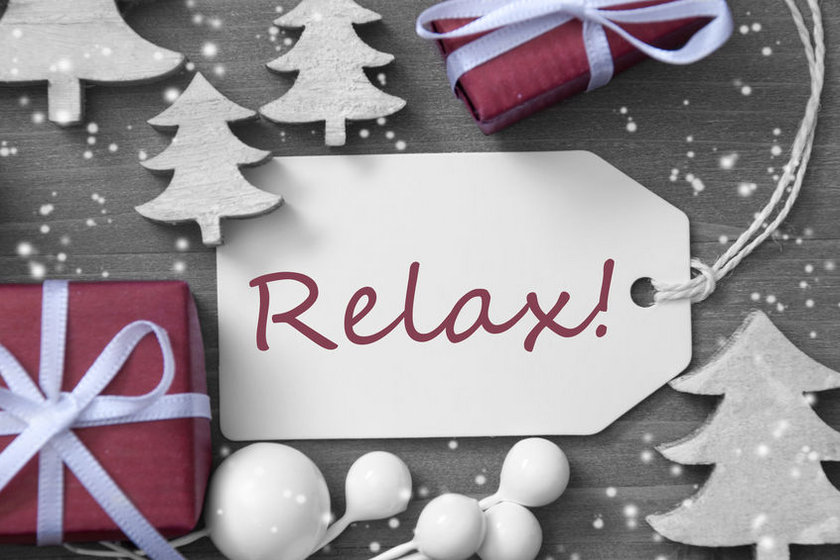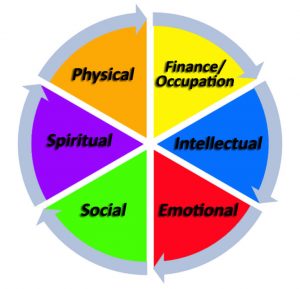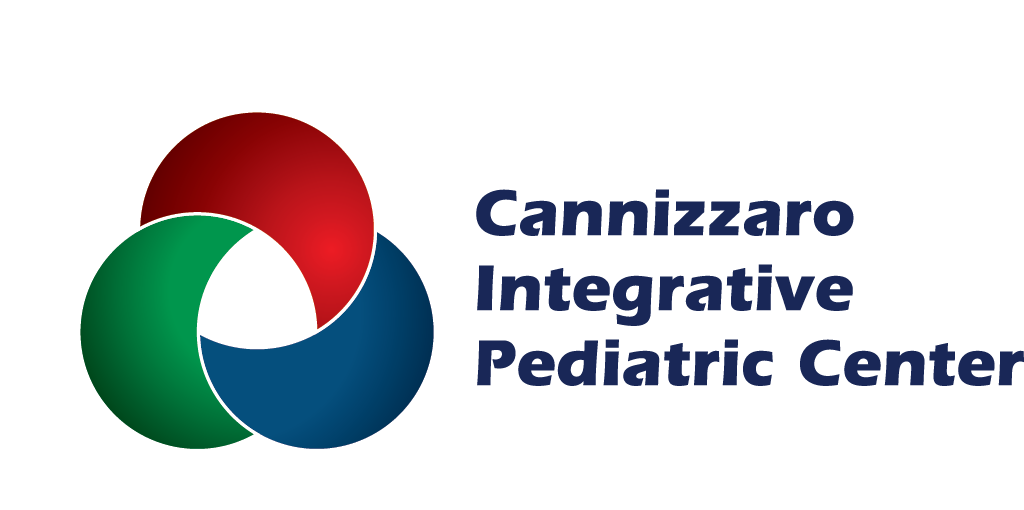
Holiday wellness takes on new meaning in the year 2020. While the usual tips to “remember the reason for the season” and “pace yourself at the holiday table” definitely still apply, 2020 has turned it all up a notch. Anxiety levels are through the chimney and COVID 19 weight gain hangs on for dear life. As a result, many of us have entered the holiday season already battling intensified versions of our usual holiday stressors.
There’s a training tool in the mental health profession called the Wellness Wheel, which identifies six areas of life that affect our general wellbeing: physical, intellectual, emotional, spiritual, social and vocational. You may not be having difficulty in every area, and that is normal! Target the areas that you feel are the most problematic for you and try some of our tips to restore your balance!
Physical Wellness Tips
Since these tips are coming from a medical office, it may seem appropriate to start with physical wellness. However, there’s another reason, and that is because your physical health directly affects your intellectual and emotional health—it’s a cascade effect. The best example of this is exercise. We all know that we feel better when we exercise due to the rush of endorphins. When our minds are clear and happy, we can make better decisions and derail depression. Here is a list of physical wellness tips:
- Exercise: Get those endorphins circulating regularly to de-stress, boost your mood and strengthen your body. You’re less likely to stress-eat as well.
- Eat right: Eat nutritionally dense, real foods. Are you aware of what these are? High protein, veggies, good fats and complex carbohydrates. Holiday treats are fine, of course, but do try to restrain yourself from eating a plate of cookies because “it’s been a tough year.”
- Get enough sleep: It wouldn’t be a wellness tip list without pulling out this old chestnut. We all know how important sleep is to our overall wellness. You may need to put in some extra effort (i.e., relax and unplug earlier) in order to get enough sleep.
- Unplug: The light from your devices interfere with your circadian rhythm. But we’re on our devices even more this year due to the COVID 19 pandemic, so this may be an area of special focus for you and your family. We happened to write an entire article about this earlier in the year.
Intellectual Wellness Tips
Intellectual wellness is all about giving yourself time to develop your skills, learn new things and get creative!
- Exercise your brain: Part of intellectual wellness is learning to do something new. Tackle a DIY project via online how-to video, read an article on a new (but interesting) topic or try cooking a dish from a cuisine unfamiliar to you.
- Hobbies: Make time for hobbies that you enjoy. Humans have hobbies because we like the feeling of mastery. It stimulates the intellect and makes you feel good about yourself. (Language and hobbies may separate humans from animals, unless you consider napping a hobby!)
Vocational Wellness Tips
Vocational wellness refers to the feeling of personal fulfillment and satisfaction with whatever work you’re doing and how you actively connect with your big “why” in life. It’s part of your purpose and the stuff you live for. Even if you’re retired, it can be about sharing the skills you’ve honed over a lifetime, maybe in the capacity of volunteerism. For kids it can be about chores and contributing to the family. It’s also a good time of year to review your goals!
- Connect with colleagues: Finding things you have in common with your colleagues creates a positive atmosphere that you all will enjoy. Many people spend more time with their colleagues than with their own families!
- Grow your skills: In order to stay motivated and relevant, attend trainings, professional development webinars and collaborative meetings.
- Scrutinize your schedule: Make sure you’re balancing work with leisure in order to avoid feeling overwhelmed while still achieving your goals. Everyone’s idea of balance will be different, but some of us need to literally schedule in some fun!
Spiritual Wellness Tips
The hustle and bustle of the holidays can be fun, but it’s too easy to go from one thing to the next without taking time to check in and connect with yourself, your deity and your purpose. Your spiritual wellness is a “bridge” to mental and emotional wellness since clarity in this area helps you tend to your mental, spiritual and emotional needs.
- Plan quiet time: Don’t fear intentionally quieting yourself, whether it be through meditation, breathing exercises, prayer or reading spiritual texts or books of your choice.

- Be in nature: It’s natural for us to enjoy nature! Go out there and take a walk, being intentional with your focus. Listen for the birds, sniff the wind and enjoy whatever weather is happening. (In other words, “be” like your dog.)
- Enjoy music: There’s nothing like your favorite tunes to lift your spirits, whatever genre that may be for you!
Social Wellness Tips
We are social beings so it’s important to connect with other people, especially during the holidays. Despite popular belief, introverts do need people, they just need LESS of them at a time!
- Plan for tele-togetherness: While we are all probably a little tired of communicating digitally, but if you can’t be with friends or relatives in person, make sure you plan some sessions with people you love over the holidays. This can also help you strategically use your screen time. Unplug, but stay connected!
- Create or modify holiday traditions: This is the most important year to keep your traditions intact or to think of ways to adjust them while social distancing. It is also more important than ever to remember the “reason for the season” and plan meaningful activities for your family to enjoy together. If this year has taught us anything, it has been that time with people you love is special!
Emotional Wellness Tips
Emotional wellness is an area that requires you to recognize when you’re feeling “off” and have proactive strategies in place to keep your balance. You can’t correct what you don’t identify!
- Check in with yourself: Ask yourself (maybe each morning), “How am I doing today?
- Identify your feelings: Don’t gloss over them. If you feel sad, happy, mad, stressed or anxious… acknowledge it. By doing so, you are promoting a healthy way for those feelings to flow (i.e., stagnant water pollutes, running water filters things out). When you dismiss your feelings, you dismiss the fact that you’re allowed to have them. This is a start to emotional regulation.
- Express yourself: Perhaps Madonna first put this mantra to music; but learning to talk about your feelings rationally instead of reacting (usually in the form of lashing out at others around you) is the best way to handle your emotions. Don’t be afraid to talk about your feelings.
- Keep a gratitude journal: Not only is this appropriate for Thanksgiving but it is a great habit to keep up all year long. It’s amazing how listing what you’re grateful for or what’s going “right” in life can improve your state of mind. Try it!
- Laugh: Science has proven that laughter increases endorphins (just like exercise does), which means it decreases stress and anxiety and makes us happier! So, call up a friend who makes you laugh, spend time with silly little kids or watch your favorite comedian on YouTube!
Hopefully these tips will help you implement your own holiday wellness strategies. If you’d like to make a quick assessment of your wellness, take a minute to rate yourself in the areas of the Wellness Wheel. Download the worksheet below and fill in how “charged” you feel in each area. Then, take a look and see where you might need to charge up a little! Be compassionate toward yourself. Don’t forget to also note the areas where you’re doing great. Use some tips in the article to strengthen low-charge areas and get back to balance!
Download the worksheet: How Charged is Your Battery?
Special thanks to Diana Shaw, Ed.S., RMHCI and founder of Chaos Solutions Counseling (located in our building) for her contribution to this article.





